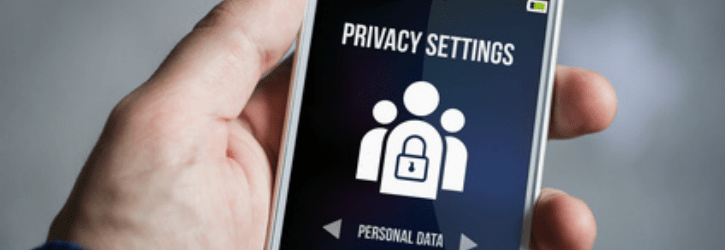
Welcome To The Data Leak Lawyers Blog
We focus on the latest news surrounding data breaches, leaks and hacks plus daily internet security articles.

We focus on the latest news surrounding data breaches, leaks and hacks plus daily internet security articles.

The typical answer as to the popular question “is your phone recording you?” is often “no”, according to many. However, you may not be aware that some things can be recorded, and you may not be aware of it.
According to a recent investigation by TechCrunch and The App Analyst, some popular apps may be recording user data without proper – or more explicit – permission or understanding. The investigation reportedly looked at a range of apps and found ways in which the companies or the developers could record and store data they may not have permission for.
That’s worrying; especially in the era of continual breaches linked to apps, and ongoing concerns as to how much the likes of Siri or Alexa are taking in when they’re waiting for our commands…

News of an OkCupid data breach has been denied by the company, although a “bug” has reportedly been found by a security firm anyway.
Some users reportedly complained of their accounts being hacked and taken over. As a result of a lack of additional security, like two-factor authentication – a lack of security apparently common in the dating site industry – some users were successfully targeted by criminals.
However, OkCupid denies that a security breach has taken place. That being said, a “bug” was reportedly identified by security researchers and has apparently been fixed.

Victims of last year’s TV licensing data breach need to take care to avoid falling victim to phishing scams that are doing the rounds at the moment.
Victims of the TalkTalk data breach – one of the over 20 data breach actions we’re representing people in – were contacted after the breach. It appears that scammers had got hold of information that had been exposed in the breach. Victims of the TV licensing data breach should be wary of being contacted in the same way.
We know that phishing scams using the cover of TV licensing are doing the rounds. One victim lost £10,000.00 to scammers after they managed to convince him they were the real thing.

As Gatwick Airport has been brought to a standstill over drones accessing the airfield, now is the time we need to talk about drone hacking.
We’ve highlighted this before, but given the news this week, it’s time to bring it up again. If cars can be hacked, so can drones. If smart tech in the home can be hacked, so can drones. If these things can be used to harm people – physically or financially – so can drones. They’re remote-controlled which means a huge door is there to be opened. There also incredibly easy to buy, and hackers have already demonstrated how easy it is to take control of another drone by hacking.
If there’s technology good enough to bring one of the UK’s biggest airports to a standstill, drone hacking is a serious concern.

An Amazon data breach incident took place in the lead up to the big Black Friday sales a few weeks ago.
The incident reportedly stemmed from a technical problem.
In the data protection breach, customer names and email addresses were inadvertently posted on the company’s website. They were removed upon discovery of the error, and customers affected by the data breach have been informed.
The Information Commissioner’s Office (ICO) is said to be looking into the situation.

It’s understood there have been cases of Equifax data breach fraud committed, perhaps, as a direct result of the breach itself.
Tech company, Forte, produced some stats that indicate some alarming figures in the wake of the Equifax data breach. The data can be interpreted as a possible spike in some fraud incidents after the Equifax data breach took place, which wouldn’t surprise us given the scale and nature of this monumental attack.
It’s another sign that we ought to be far more concerned with regards to data breaches than many people are.

The recent Ticketmaster cyber attack we’ve launched an action for may just be the beginning as hackers are reportedly ready to attack again.
The Ticketmaster cyber attack was successful because the hackers were able to install malicious code into third-party software that Ticketmaster were using as part of their payment process. Inbenta, the authors of the code, say they didn’t know Ticketmaster were using their code for this purpose, and had they have known, they say they would have recommended against it on the grounds of security issues.
The growing trend of hackers looking to attack third-party code means the huge Ticketmaster cyber attack may well be just the beginning.

Ransomware attacks are still on the rise, and we all have every reason to be very worried about the increasing trends we’re seeing.
According to at least one piece of recent research, 2018 has already seen double the rate of ransomware attacks so far, but what’s equally as concerning is that the attacks are changing tact to go for bigger targets to demand higher ransoms, and the hackers are enjoying success.
It’s a sign of the times, and we all need to be very careful to make sure we protect ourselves from the growing risks of ransomware attacks.

European regulators have rightly ordered big changes after the monumental Yahoo data breach that was revealed in 2016, having taken place two years earlier.
Some 500 million Yahoo user accounts were hacked, including around 39m European users; the largest ever single data breach to affect Europe. Information hacked in the Yahoo data breach included names, email addresses, telephone numbers, birth dates and passwords.
European regulators have demanded big changes be made to prevent a future incident of this size and nature ever happening again.

Cybersecurity is not a priority for most businesses in the UK, results from recent research has indicated.
Despite us being in a time where the importance of cybersecurity has never been more prevalent, businesses are still not showing the respect to cybersecurity that it deserves. In fact, recent research suggested that just 10pc of UK businesses see cybersecurity as their biggest challenge to economic success, despite 2018 being the big year of the GDPR changes.
With the Information Commissioner’s Office (ICO) now having the power to fine data breach offenders up to £17m, how cybersecurity is not a priority is incredibly baffling.
EasyJet admits data of nine million hacked
British Airways data breach: How to claim up to £6,000 compensation
Are you owed £5,000 for the Virgin Media data breach?
Virgin Media faces £4.5 BILLION in compensation payouts
BA customers given final deadline to claim compensation for data breach
Shoppers slam Morrisons after loyalty points stolen
Half a million customers can sue BA over huge data breach
Lawyers accuse BA of 'swerving responsibility' for data breach
The biggest data breaches of 2020
Fill out our quick call back form below and we'll contact you when you're ready to talk to us.